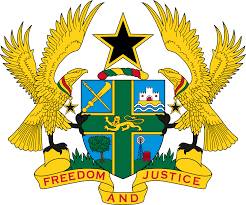## Governments in Ghana
Ghana has a long and rich history of governance, with various forms of government emerging over the centuries. From pre-colonial kingdoms to military regimes and democratic republics, Ghana's political landscape has undergone significant transformations.
### Pre-Colonial Era:
Before the arrival of European colonizers, Ghana was home to numerous independent kingdoms and empires, each with its own distinct system of governance. These kingdoms, such as the Ashanti Empire and the Kingdom of Dagbon, were often ruled by powerful kings or chiefs who held both political and spiritual authority.
### Colonial Era:
In the 19th century, the British Empire colonized Ghana, which was then known as the Gold Coast. British rule brought about a centralized administration and the introduction of Western-style governance systems. However, the colonial period was also marked by resistance and calls for independence.
### Independence and the First Republic:
Ghana gained independence from British rule in 1957 and became a republic. The first government was led by Kwame Nkrumah, who played a pivotal role in the independence movement. Nkrumah's government adopted a socialist ideology and implemented policies aimed at promoting economic development and social justice.
### Military Regimes:
In 1966, Nkrumah's government was overthrown in a military coup. Ghana subsequently experienced a series of military regimes that ruled the country for over two decades. These regimes were often characterized by authoritarianism and economic instability.
### Return to Democracy:
In 1992, Ghana returned to democratic rule with the adoption of a new constitution. The constitution established a multi-party system and provided for regular elections. Since then, Ghana has held peaceful and democratic elections, with power alternating between different political parties.
### Current Government:
Ghana's current government is led by President Nana Addo Dankwa Akufo-Addo, who was elected in 2017. The government is composed of various ministries and agencies responsible for different aspects of governance, including health, education, and finance.
### Challenges and Opportunities:
Ghana's government faces a number of challenges, including poverty, corruption, and unemployment. However, the country also has significant opportunities for growth and development. The government is working to address these challenges and harness the country's potential in areas such as agriculture, tourism, and technology.
### Conclusion:
Ghana's journey of governance has been marked by both challenges and triumphs. From pre-colonial kingdoms to military regimes and democratic republics, the country has evolved its political systems to meet the changing needs of its people. As Ghana continues to navigate the complexities of modern governance, it is poised to build a more prosperous and just society for all its citizens.



No comments yet
Be the first to share your thoughts!